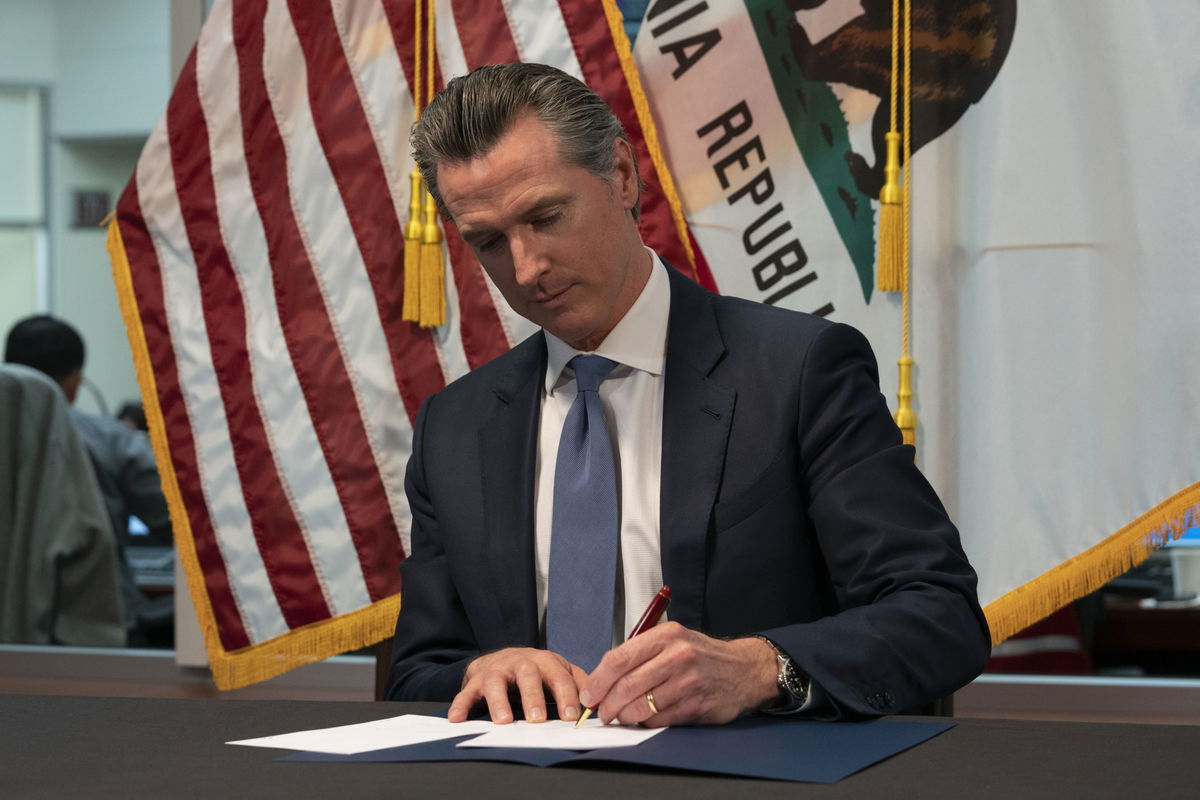Gov. Newsom pardons inmate firefighters

SACRAMENTO, Calif. (AP) — Gov. Gavin Newsom on Friday pardoned more than a dozen people, including two inmate firefighters who faced deportation, and commuted the sentences of three people who were convicted of killings where they didn’t pull the trigger.
Newsom announced pardons for 14 people, commuted sentences for 13 others and granted medical reprieves for eight state prisoners, most of them in their 60s or 70s, who are considered to be at high medical risk.
Those pardoned included Kao Ta Saelee and Bounchan Keola, who were born in Laos but came to the U.S. as young children. Each spent more than two decades in prison for crimes committed when they were teenagers: Saelee committed three armed convenience store robberies and Keola killed one person and wounded two others in gang-related drive-by shootings.
Both helped fight devastating California wildfires and Keola suffered a serious neck injury when a tree fell on him last fall. After being released from prison, however, they were eligible for deportation and each spent months in federal detention facilities.
Newsom said each man has demonstrated that he is living “an upright life” and both presented evidence that because of their convictions, they faced deportation and permanent separation from their families in California, Newsom said.
The pardons likely mean the men won’t face further threat of deportation and can regain their status as legal permanent residents.
“Being a Californian means believing that people can turn their lives around and deserve second chances but also that we are tied together and owe a duty to serve one another,” Keola said in a statement issued by the Asian Law Caucus, which represented him. “I have tried my best to earn that second chance and am thankful that the governor recognized that with a pardon today.”
“I cannot express how grateful I am to have received a pardon and to finally be safe from the threat of deportation and permanent separation from my family,” said a statement from Saelee, who spent nearly a year in federal detention in Louisiana before being freed last week. “California is the only home I have ever known.”
A bill in the state Legislature would prohibit any state or local agency from aiding in immigration enforcement, including arrests, detentions and deportations. Courts also would be barred from using immigration status as a factor in denying probation.
Newsom also commuted the sentences of several people who were convicted of murder even though someone else committed the killings. They included Samuel Redmond, who was the getaway driver during a gang-related shooting in 2000 that killed two people. He was serving a life sentence.
Omar Walker was serving a life sentence for a 1995 robbery in which his crime partner shot and killed the victim.
Michael Romero was serving more than 23 years for a fatal drive-by shooting of a gang rival in 2008. He was a passenger in the car, not the shooter.
The state Senate next week is expected to consider a bill to expand on a 2018 law limiting felony murder charges to people who actively participate in a slaying. The measure would give judges discretion in sentencing offenders convicted of felony murder as a special circumstance by removing the mandatory penalty of death or life without parole.
Newsom also commuted the life sentence of Larry Garcia, 59, who was hired by a woman to kill her husband in 1986. The two beat the man to death with a metal pipe. Newsom said that in 34 years behind bars, Garcia had “devoted himself to self-improvement” and said the California Supreme Court had recommended clemency.
The California Constitution gives the governor authority to grant clemency. A commutation reduces the length of a prison sentence. A pardon would effectively do the same, but it also restores certain civil rights for people who have already completed their sentences.
A medical reprieve temporarily moves medically vulnerable people out of prison to serve their sentences in the community under the supervision of parole officers.
